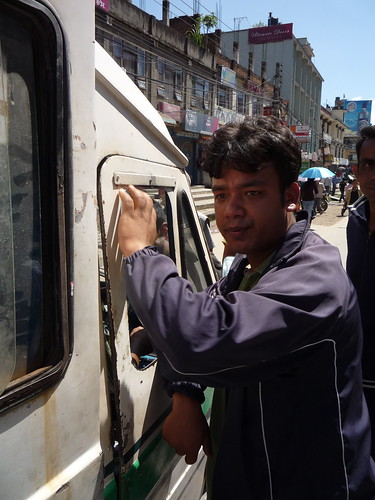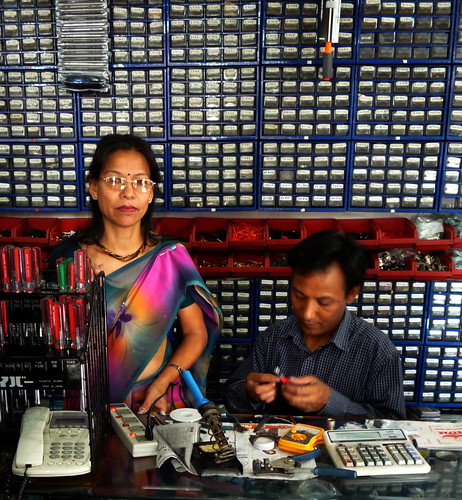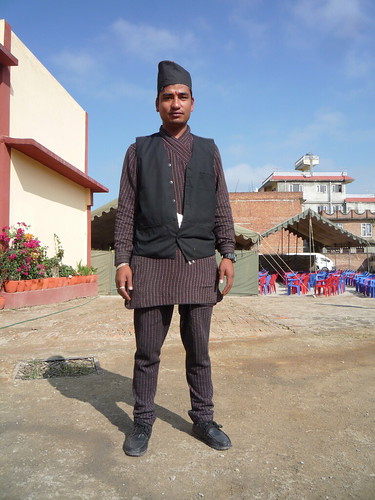
(Bandh at school. Like a snow day, except with flying bricks and burning tires)School's canceled, shops are closed, and there's no traffic on the roads. It's a bandh!
The bandh is a tried and true Nepali political tactic where an aggrieved group forces a citywide strike by blocking the streets, throwing bricks, and burning tires in the road. Taxi drivers called a bandh this year when fuel prices spiked, and teachers did it over restrictions on their freedom to protest. Today's bandh was in response to an incident of alleged police brutality.
On Wednesday evening a member of the Nepali Congress Party was riding his motorbike in the city when he was either 1) flagged down by traffic police and then, after he refused to stop, was beaten to death by them or 2) died from injuries after he drove accidentally into an electrical pole. Witnesses say the former, police say the latter.
The Nepal Student Union, which is allied with the Nepali Congress party, responded with a bandh. They announced it Thursday night and carried out on Friday.
So what did this week's bandh look like? Walking around Patan, it meant lighter than usual traffic, and some shuttered shops. When I needed a ride home, only a few buses were running. Finally, I caught a ride with a tempo, one of those sputtering threewheelers that charge a fare of 15 cents.
Then all of a sudden the bandh got a lot more volatile. A group of teenagers swarmed the threewheeler I was riding in, yelled at the driver, banged on its sides, and eventually, as I was turning to disembark, one of them hucked a red brick through the glass window, shattering it all over my seat. This ride was really worth the third nickel.
The riders in the threewheeler started walking home. All down the street, shop keepers pulled down their metal gates, and motorbikes scattered.
The brick thrower, it turns out, was the secretary of the Nepal

Student Union at Patan University. He said he was friends with the party member who had died this week and he was sad and angry at the police and the Home Minister over the incident. So why was he attacking the threewheeler? "They break our rules, we break their windows. Rule is rule." And with that, he was off to swarm a man riding a motorcycle, who was let go after a curt lecture.
"Rule is Rule."




